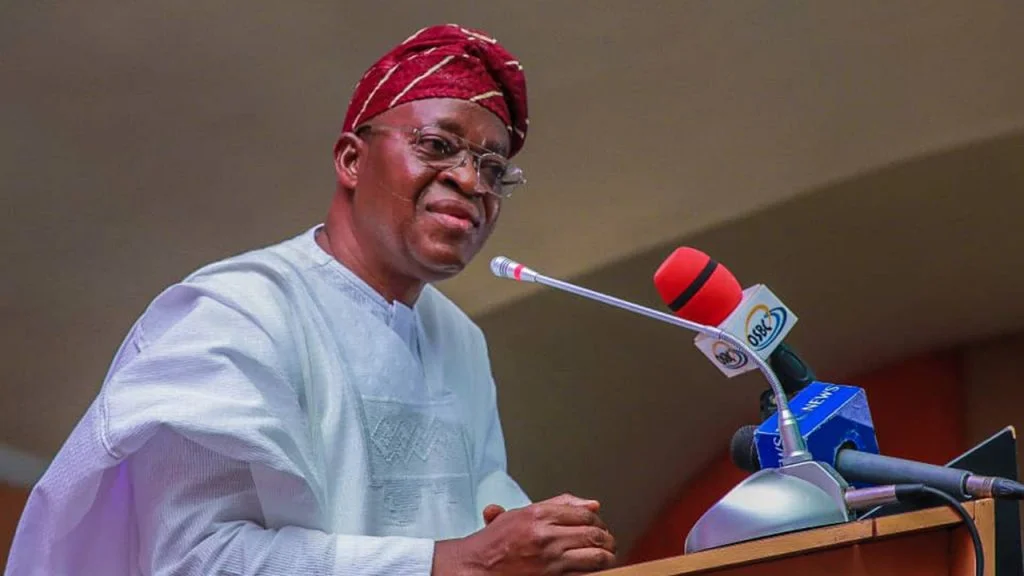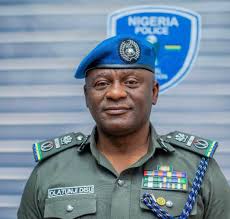The federal government has hinted that it would launch a road map for the Federal Ministry of Marine and Blue Economy.
Minister of Marine and Blue Economy, Mr. Adegboyega Oyetola, stated this during a panel discussion at the 29th session of the Nigeria Economic Summit Group (NESG), with the theme: “Pathways to Sustainable Economic Transformation and Inclusion.”
Oyetola acknowledged the timeliness of the summit, noting that its output would be considered in developing Nigeria into a hub of maritime trade and ancillary services in Africa.
“Tonight’s session is the latest in our consultation with industry stakeholders in the maritime and the blue economy sector. We understand the critical role the maritime sector plays in enabling business in an import dependent economy such as ours,” a statement signed by the Director of Press and Public Relations of the Ministry of Marine and Blue Economy, Olujimi Oyetomi, said.
“It is imperative that we move more quickly towards improving the navigability of our waters, engage the draught of our ports, achieve 24 hours cargo clearance, and ensure adequate connectivity of our ports to hinterlands with efficient road and rail networks.
“Challenges of the maritime sector are well known and documented, slow pace of legislative reforms and weak sector governance to infrastructure deficits, inefficient port management, poor road network, multimodal facilities, the dominance of foreign shipping companies, non-competitiveness of our ports compared to our West African neighbours, port inefficiency and congestion and other malpractices,” he said.
Projecting the ministry’s directive in the next four years, the minister stated that it is imperative that the ministry having identified these inhibitors, works towards improving the navigability of our waters, engage the draught of our ports, achieve 24 hours cargo clearance, and ensure adequate connectivity of our ports to hinterlands with efficient road and rail network creation.
“We seek to introduce new business models that can ultimately develop our capabilities and ensure the continual dredging of our inland waterways,” he said.
Speaking further, Oyetola disclosed his resolve to get presidential endorsement for the use of scanners in port operations in the country, noting that “all over the world, seaports have gone digital, and digitalisation is mainly used to drive efficiency and remove human contacts that are usually very slow and breed corruption.
“For Nigerian ports to take up its natural position as a maritime hub for countries in West and Central Africa, there must be an enforcement of strict digitalisation of all port operations in the country and an immediate rehabilitation of the Nigerian ports to bring about an upgrade of ports facilities and improvement to make room for our ports to become revolutionised and comparable with others in the advanced maritime nations,” Oyetola said.




